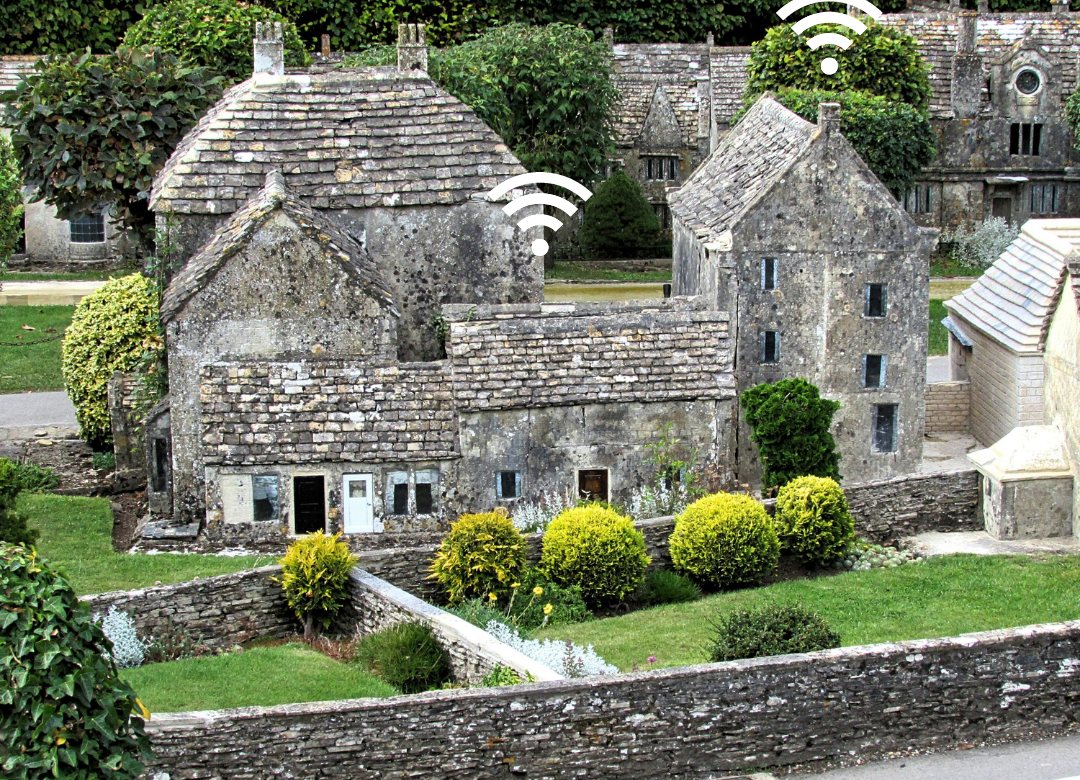If you live or work in a remote area in England, Scotland or Wales then you may unfortunately know all to well that many remote areas across the UK are left with slow internet speeds, causing a digital divide between rural and urban areas.
The UK Government aims to tackle this problem that 312,000 rural homes face, by investing £800 million in upgrading broadband infrastructure for those affected.
The Government’s digital strategy is to achieve full gigabit broadband coverage across the UK by 2030, of which this investment will be a part.
Rural Regions Struggle to Connect
The CEO of the Digital Poverty Alliance, Elizabeth Anderson, has spoken about how millions across England, Scotland and Wales are still struggling to access even some of the basic online services due to poor connectivity. This is especially prevalent in rural areas. Anderson is pleased to see ‘the government’s renewed push to roll out improved broadband.”
Strong, reliable internet isn’t a luxury or a ‘nice to have’ commodity. In today’s digital world, broadband internet is a necessity and should and is considered to be an important utility, just like electricity and heating.
Anderson says, “Connectivity must be viewed as a core part of modern life in the digital age…, and continued investment such as this project is needed to ensure millions aren’t left digitally excluded.”
Gaps in coverage must be addressed so that rural communities have the same access to online services as those in urban areas. Nowadays, many essential services such as healthcare and education are moving online so having the necessary connectivity to reach these services is vital.
High-Speed Connections Must Be Affordable
Making sure rural properties have accessible high-speed internet connections isn’t the only hurdle that digital poverty work needs to tackle – It’s the cost too.
Once these connections to high speed broadband are made available to those in more remote areas of England, Scotland and Wales, the Government must also ensure that the monthly costs of having these connections are affordable.
We continue to be in a cost-of-living crisis, and it’s important that costs of high-speed internet doesn’t inhibit connecting people in rural areas.
Rural Areas Left Behind in Digital Revolution
It’s clear that harder to reach areas in rural are remote locations across England, Scotland and Wales have been somewhat left behind when it comes to digital revolution and the Government is aiming to rectify this.
The digital inequality between rural and urban areas is set to be reduced, ensuring that all parts of the country have access to and can benefit from high-speed internet access.
In some of these more remote regions, online access has been hindered by outdated infrastructure. In real terms, this means that residents in rural areas face difficulties when trying to perform the simplest of online tasks, for example, streaming video, taking video calls and downloading large files. Things many people in urban areas very much take for granted.
The Government’s initiative and investment will look at targeting these affected regions to bring them faster internet access.
We’ve already said how essential it is for communities to have access to fast broadband in today’s digital world, and these new upgrades will make sure that rural communities will gain access to faster, more reliable broadband.
Wales Set for Large-Scale Broadband Upgrade
This project has highlighted that Wales, for the first time, has the lowest percentage of gigabit coverage in the UK. Rural regions like the South Wales Valleys, Exmoor National Park and the Forest of Bowland are set to benefit from a large-scale broadband upgrade, with significant improvements reducing the digital poverty gap with more urbanised areas.
This will mean that millions more people will have access to affordable, fast broadband. Rural communities shouldn’t have to struggle with second-rate broadband infrastructure just because they don’t live in an urban area. They still need to access vital online services and require the digital infrastructure to do so. The good news is, the technology required to power fibre broadband, intelligent software and adapting demands by both residents and businesses is more affordable and accessible than before.
The Government has taken a good step forward with their digital strategy and £800m pledge, but we also need the telecoms industry to take some responsibility to help reduce the digital divide.
Thankfully, there is good motivation industry-wide for committing to the efficient deployment of networks in rural areas.
The crux of the matter is, as a nation we need higher bandwidth to keep up with what work and education expects of us from home and in the office. This needs to be widely available across both rural and urban areas, as well as being affordable for all.
We have high hopes that combining industry collaboration with government funding and digital strategy will provide great outcomes for rural connectivity across England, Scotland and Wales.
Geekabit Can Help with Rural Connectivity
It’s fantastic that better, faster broadband connectivity is on the way for rural residents and businesses. But what about those of you who need a strong, reliable, fast internet connection now?
There’s nothing more frustrating than trying to get online and constantly find that you’re dropping out or buffering.
Our team of Wi-Fi engineers here at Geekabit have various options when it comes to rural connectivity. We’ve helped countless clients connect their remote, rural business premises to more reliable internet via Starlink satellite broadband and mobile broadband options.
If you are interested in how our Starlink and 4G installation services could help your business, please do get in touch with our friendly team today. We cover Wales out of our Cardiff base, the South Coast of England from our Winchester base and of course London.
4G mobile broadband or Starlink satellite internet could be just the alternative to fibre that your business needs.


